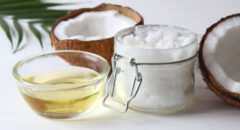
In the world of newborn care, the decision between handmade and store-bought baby food is critical and weighs heavily on the minds of many parents. While convenience is important, baby food's nutritional value and quality should not be sacrificed. This essay discusses the significance of homemade baby food, provides simple and healthy recipes for parents to attempt, and offers helpful advice on how to store and freeze homemade baby food securely.
Homemade Vs. Store Bought
Homemade infant food outperforms store-bought choices regarding freshness, nutrition, and customization. Parents who prepare baby food at home have total control over the products used, ensuring that their children receive a healthy and balanced diet.
Store-bought baby food frequently contains preservatives, additives, and excessive sugars, which can be harmful to a baby's health in the long term. In contrast, homemade baby food uses fresh and organic ingredients, enabling optimal newborn growth and development.
Easy, Nutritious Recipes For Homemade Baby Food
Using a blender is the simplest way to prepare baby food. With fresh ingredients and a little water, breastmilk, or formula to thin it as required, you may simply prepare your baby's meals without investing in equipment that you might not use for long.
Stage 1 Baby Food
These baby foods are designed for early eaters since they are usually quite thin and simple for babies to move about in their mouths.
Stage 2 Baby Food
These infant foods are often somewhat thicker, include more than one ingredient, and have a larger range of components. Most babies are ready for these types of purees at seven to eight months old or after mastering thinner purees.
To assist parents in creating homemade baby food, here are a few simple yet nutritious recipes to try:
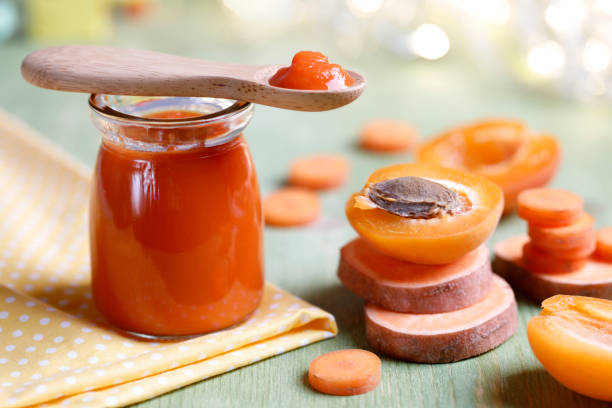
Sweet Potato Mash
Steam or bake sweet potatoes until soft, then mash them to a smooth consistency. Sweet potatoes are rich in vitamin A and fiber, making them an excellent choice for baby's first foods.
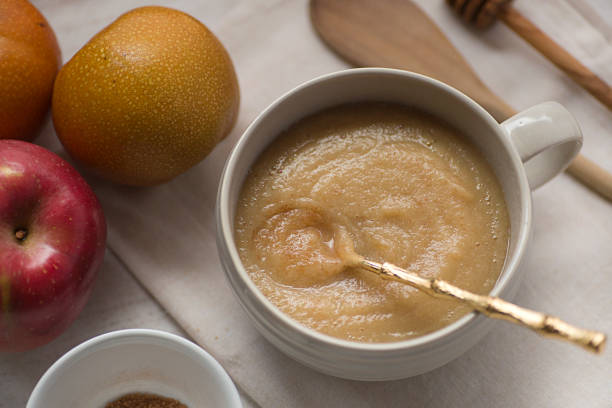
Apple Pear Puree
Peel, core, and dice apples and pears, then simmer them in water until soft. Blend the fruits together to create a smooth puree packed with vitamins and natural sweetness.
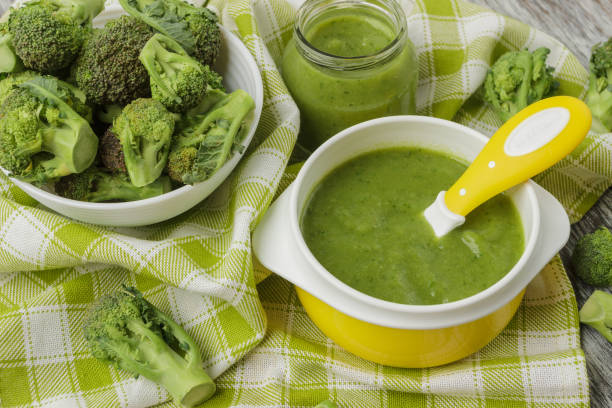
Carrot and Broccoli Blend
Steam carrots and broccoli until tender, then puree them with a bit of water or breast milk for added creaminess. This blend offers a mix of essential nutrients like vitamin C and calcium.
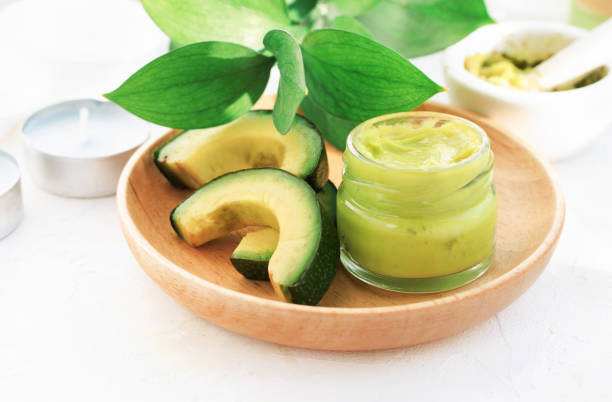
Avocado Puree
To make avocado puree for a baby, you just need a fresh avocado, a blender, and some lemon juice if you plan to store it for later. It's a perfect way to introduce a low-allergenic food that's rich in healthy fats.
Tips On How To Store & Freeze It Safely
Proper storage practices are essential for keeping homemade baby food fresh and safe. Here are some suggestions for securely storing and freezing homemade baby food.
- Use airtight containers or ice cube trays to store small portions of baby food. This allows for easy thawing and minimizes waste.
- Label each container with the date of preparation to ensure that the food is consumed within a safe timeframe.
- Store baby food in the refrigerator for up to three days and in the freezer for up to three months to maintain quality and nutritional value.
Finally, homemade baby food offers several benefits to both newborns and parents. Parents can ensure their children get the finest nutrients possible by preparing baby food at home without sacrificing taste or quality. With easy recipes and correct preservation practices, making homemade baby food can be a satisfying and nutritious journey for parents looking to offer the best for their little bundles of joy.






